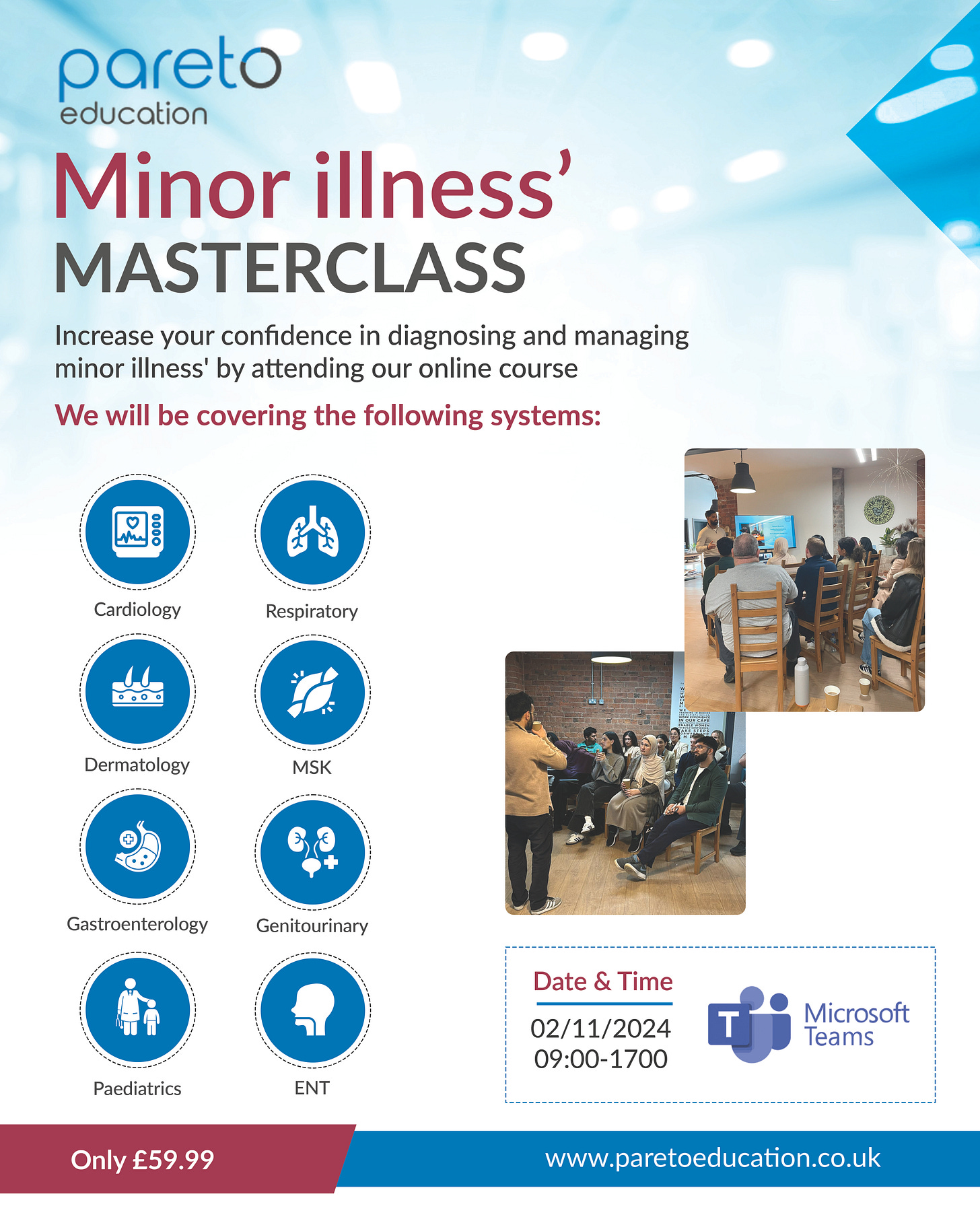How To Make Your Employer/Practice Love You (Primary Care Edition)
Looking for a Minor Illness Update?
QoF. For those working in primary care QoF, short for Quality Outcomes Framework is likely to be the most repeated buzzword in your day to day experience.
It’s drilled into our minds early on, and most of what we do is geared towards meeting QoF outcomes in order to maximise practice income. Luckily, QoF makes sense. It’s genuinely evidence backed and is guided towards ensuring best practice care for patients.
The reality is quite simple. Those who aren’t meeting QoF targets are pulled up, whilst those who are will be recognised in the practice. Generally salaries and rewards in primary care are based on how much “QoF responsibility” a doctor/nurse/PA/pharmacist takes.
Therefore, knowing how to stand out in light of QoF is beneficial to both patients and professionals. Here are some super simple things you can do to help your practice get prepared for the QoF year:
COVID & Flu vaccines: This is big money for practices. For example, the renumeration for each flu vaccine is £9.58. Therefore, for a short, 5 minute procedure practices can make a fair whack. This perhaps explains why practices are desperate to organise weekend flu clinics. Get into a habit of asking patients at the end of a consultation as to whether they would like a flu vaccine. All you have to do is go to the fridge, take a vaccine out and send a message to your practice manager to log it. Your practice will love you!
Medication reviews: Not every practice has a pharmacist or sometimes, the pharmacist is unable to review every patients medication. Often when you see a patient, you may notice that their medication review is due. This is an exercise of rationalising their medication, looking at their bloods and deciding if they need further changes or not. You may not have the time to change their medication in which case you can refer them to book in again or to another member of staff. However, ensuring that each patient has had a medication review yearly is important for practice payments.
Chronic Diseases: These are becoming the most costly area for the NHS with rising incidences of diabetes, hypertension and COPD. Practices are incentivised to carry out yearly reviews to ensure patients are up to date with their treatment, their bloods are checked and are signposted/referred early if required. If this is an area of interest, ask your practice to upskill you in carrying out these reviews. They require a unique way of thinking about patients but can be very rewarding!
Public Health: Disease prevention has become a vital area for the NHS. I’m sure you’re all seeing the huge increase in patients requesting medications such as moujaro for weight loss. Referral to services such as pulmonary rehabilitation, weight loss and smoking cessation are key for practices so keep these in the back of your mind. Additionally, if you’re seeing a patient with an asthma exacerbation, check their inhaler technique and code that you’ve checked this. This is also a form of prevention!
Palliative Care: This is becoming an increasingly important area as patients on the palliative care register are increasing. Key tasks such as a Gold Standards Framework referral, ReSPECT form and end of life planning reviews are vital. If you’re out on a home visit where these things haven’t been done, it is vital you let a senior clinician know. Lack of planning can make things very difficult for patients and their families.
That's our list based on the current trends in this QoF year. As you can see, each of these domains are in line with what the public needs. This means that meeting QoF targets ultimately contributes to better patient care, as well as ensuring that you become an irreplaceable part of your healthcare team.
Minor illness’ Update
Update courses are important. There are always new changes to practice guidance, especially as minor illness’ season looms. Some of these changes include:
Diagnostic criteria
New, emerging investigations
New referral pathways include hubs, SDEC and other services
Changes in management including analgesia, antibiotics and surgical treatment.
We at Pareto Education try to keep our eye on the ball. We’ve brought together all the latest minor illness’ guidance to give you both a refresher AND an update for latest practice. In this CPD FULL DAY, online course we cover numerous practice areas including asthma, COPD, infectious diseases, rashes, paediatric pyrexia, MSK injuries and more.
We are also proud to announce that the course will be RECORDED for future access for 60 days. This means you can watch the content in your own time or even watch it again for a refresh.
Don’t Forget to Join our FREE Webinars
We have two awesome webinars this week, completely free of charge for you attend.
Core Respiratory 1: This is where we will be covering the key principles of asthma, COPD and spirometry interpretation
Pharmacy First Impetigo: For any pharmacists and other allied clinicians who need an update on impetigo, join us for a comprehensive discussion including cases.
You can check out our courses on our website
Website: www.paretoeducation.co.uk
Instagram: www.instagram.com/pareto_ed
Twitter: www.twitter.com/pareto_ed
Youtube: https://bit.ly/3DPm23c
Email: info@paretoeducation.co.uk






